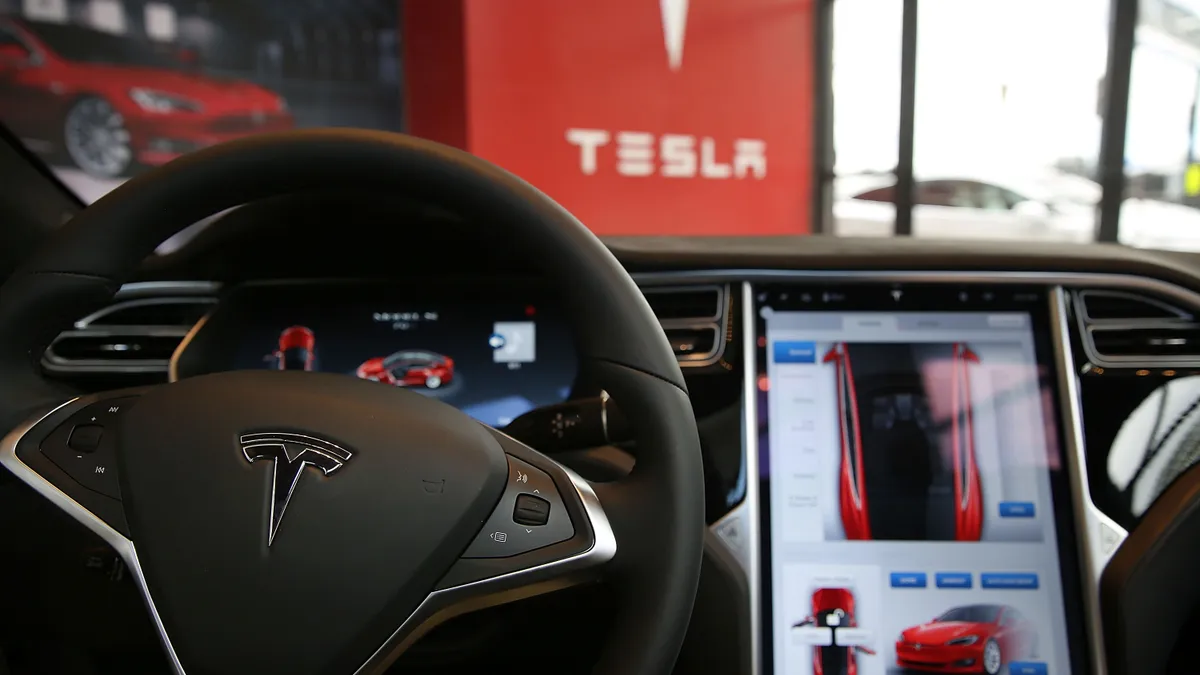Dive Brief:
- Tesla operates a racially discriminatory workplace, California's civil rights agency alleged in a recent lawsuit (Department of Fair Employment and Housing v. Tesla, Inc., No. 22-cv-006830 (Feb. 9, 2022, Calif. Superior Court)). The agency claimed specifically that the company's workplace is "racially segregated," with Black workers making up a fifth of its factory operatives and 0% of its leadership.
- The agency's lawsuit arrives after its three-year investigation into Tesla's employment practices — an inquiry that was brought on by the agency's receipt of "hundreds of complaints from workers."
- In response to the lawsuit, Tesla released a public statement claiming the agency "never once raised any concern about current workplace practices at Tesla." The auto manufacturer said it opposes all forms of discrimination and harassment, and that its employee relations and diversity, equity and inclusion teams work against misconduct of that nature.
Dive Insight:
California's claims center on the makeup of Tesla's workforce. The company employs 36,000 direct workers in California, and thousands more contractors. Black workers make up 0% of its executives and 3% of its professionals at its Fremont plant, the agency said. Meanwhile, Black workers comprise about 20% of its factory operatives.
"Black and/or African American workers are segregated to the lowest levels," the agency said in its lawsuit. "Segregation at the Fremont factory, along with the absence of Black and/or African Americans in leadership roles, has left many complaints of rampant racism unchecked for years."
Tesla production leads used racial slurs to refer to Black workers, for instance, the suit claimed. One Black worker said he heard racial slurs uttered between 50 and 100 times a day. Racist imagery also appeared throughout the Fremont factory.
These incidents gave way to employment patterns that placed Black workers at the bottom, the agency said. "[Workers] have complained that Black and/or African American workers are assigned to more physically demanding posts and the lowest-level contract roles, paid less, and more often terminated from employment than other workers. They have also complained that Black and/or African American workers are often denied advancement opportunities, and more often and more severely disciplined than non-Black workers."
The complaint took aim at Tesla's human resources department, which was allegedly "not well-trained in analyzing race complaints." The department was also understaffed, the complaint said. In handling one employee complaint of racism, the department deemed a name used to refer to an employee as "simply a 'nickname,'" not a racial slur, even though the Black complainant perceived it to be racist and the harasser had been coached previously on his condescending communication style," the complaint said.
In its dismissal of California's claims, Tesla said the lawsuit, while claiming to expose information from its three-year investigation, merely "focused on alleged misconduct by production associates at the Fremont factory that took place between 2015 and 2019."
In the lawsuit itself, California refuted this statement: "Contrary to claims made in Tesla's public blog one day after the mediation that DFEH 'has never once raised any concern about current workplace practices at Tesla,' DFEH and Tesla's own workers throughout the state – not just production associates from the Fremont factory from 2015-2019 – have raised concerns about race harassment, discrimination, and retaliation for years. They still do, as complaints were filed as recently as 2022."
Tesla has faced several lawsuits claiming workplace discrimination over the years. In late 2018, the New York Times detailed the allegations of racism Black workers made against the company, following the filing of three lawsuits.












